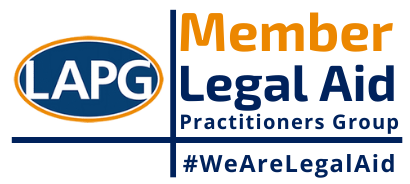A pilot project conducted in Coventry and Warwickshire between May 2010 and May 2013 indicates that introducing CAFCASS Family Court Advisors into pre-proceedings planning can impact positively on the diversion of cases from care proceedings and the duration of care and supervision proceedings, in line with the approach set out in the Public Law Outline[1]
Family Court Advisors (FCAs) are practitioners employed by Cafcass, an independent Court advisory service, to represent children’s interests in family court proceedings.
The Objectives
The aim of the project was to examine whether earlier involvement of FCAs could impact positively on diversion of cases from care proceedings and the duration of care proceedings.
The Pilot took place across Coventry and Warwickshire, between May 2011 and May 2013. Evaluation at the third pilot site, Liverpool, is on-going.
The project compared 26 cases, where FCAs were involved in pre-proceedings, referred to as the “Cafcass PLUS” sample and 30 comparator cases, where there was no FCA involvement in pre-proceedings.
This project is one of a number of initiatives designed to increase compliance with the Public Law Outline (PLO), a series of proposed changes which aims to tackle inefficiencies in all areas of the family justice system. One of the central objectives of the PLO is to reduce the duration of care proceedings, which in 2010 averaged 70 weeks, to a proposed target length of 26 weeks.
The Findings
Impact on Diversion of Cases
Overall, the pilot showed potential for a positive impact on the diversion of “edge of care” cases. In the Cafcass PLUS sample the overall diversion rate was 40% compared to the national average of 25%.
Positive reports from the study indicated that FCA involvement simulated parental engagement and provided a “wakeup call” for parents, where the local authority has not yet commenced proceedings. FCAs were able to explain concerns about the children to the parents from independent standpoint. This was considered to be particularly important where parents may be locked into an adversarial relationship with the local authority.
It was also identified that experienced FCAs provided a valuable steering and advisory group for pre-proceedings social work and decision making. Most significantly, the involvement of FCAs assisted in identifying potential placements in the wider family network resulting in a higher rate of placement within a child’s extended family. FCAs also supported family members wishing apply for private law orders (for contact and residence), thereby achieving permanency for the child without recourse to care proceedings.
Impact on the duration of proceedings
In respect of the effect of early involvement of FCAs on the length of proceedings, the results were more variable. However, overall, a greater number of Cafcass PLUS cases were resolved within the 26 week target compared to the comparator cases.
One of the most common messages from those involved in the project was that it afforded FCA’s a valuable “head-start”, meaning that they were in a far better position to provide recommendations to the Court at the first hearing. Another positive effect of early liaison between the social work team and FCAs was that that it assisted to narrow the issues and identify any assessments which needed to be completed, thus proceedings once commenced could be progressed more quickly.
In addition, the introduction of FCAs at this early stage provided the child with an independent voice in pre-proceedings. This is particularly important as the new 26 week deadline will almost certainly result in a delay in issuing proceedings and without the introduction of stronger role for the FCA a voice for the child in these early stages will continue to be absent
However, despite these positive reports, the number of Cafcass plus cases which realised the 26 week target was comparatively small. The report indicates that whilst the early intervention of FCAs has the potential impact positively on the duration of care proceedings, FCAs cannot overcome the interplay of the other factors which cause delay in these proceedings. These include:
Systematic factors:
- Variability of social work in pre-proceedings and also Court’s failure to recognise good social work
- Entering proceedings too late and on an unplanned emergency basis
- Not offering effective support to parents with fluttering mental capacity and delay in involving the official solicitor
- Problems timetabling hearings due to insufficient court time and diaries of busy professionals
Child and family factors:
- Late joining identification of kin and paternity of fathers
- Child health, disability and behavioural factors
- Larger sibling groups where there are different plans for children
- The negative impact of consecutive birth cases, where one child is born during proceedings or in quick succession to another.
Clearly, it is difficult to circumvent the delay caused by the child and family factors identified above. However, further work is needed to address the systematic factors identified. It is likely that if these issues could be resolved far greater impact in respect of early involvement of FCAs could be realised.
Conclusion
These findings should be treated with some caution in light of the small sample and will need to be reviewed once results from the third sample site are available. Despite these reservations, there is clear evidence of the positive role which FCAs can play in pre-proceedings work.
Perhaps most importantly this project has served to emphasize the importance of a whole system approach and particularly how effective partnership between Cafcass and the Local Authority has the potential to minimise delays and avert the continued increase in care applications, which is stretching resources beyond capacity.
However, early involvement of FCAs alone is not enough to overcome systematic failings which is inbuilt within the family justice system and further work is needed to examine how these barriers can be addressed to ensure the effective progression of proceedings in the future.
Eleanor Weightman
Paralegal
Creighton and Partners
[1] Dr Karen Broadhurst, Dr Paula Doherty and Ms Emily Yeend etc “Coventry and Warwickshire Pre-Proceedings Pilot Final Research Report” (May 2013)


